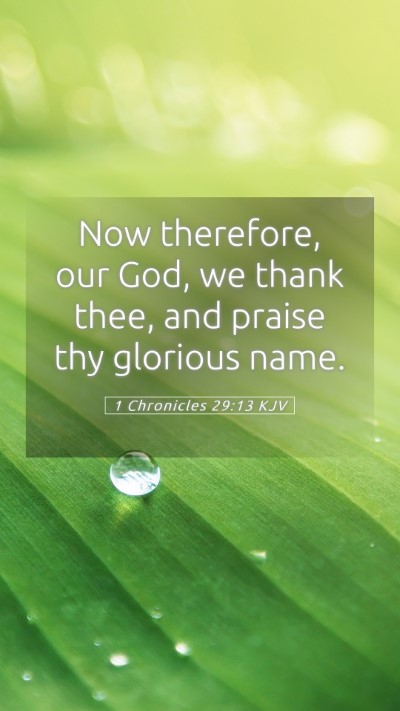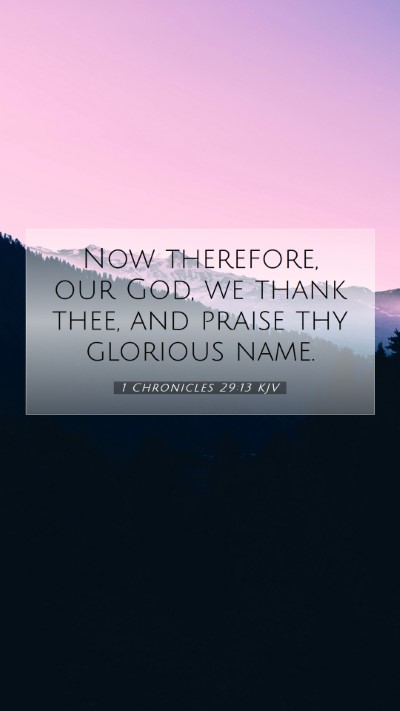Old Testament
Genesis Exodus Leviticus Numbers Deuteronomy Joshua Judges Ruth 1 Samuel 2 Samuel 1 Kings 2 Kings 1 Chronicles 2 Chronicles Ezra Nehemiah Esther Job Psalms Proverbs Ecclesiastes Song of Solomon Isaiah Jeremiah Lamentations Ezekiel Daniel Hosea Joel Amos Obadiah Jonah Micah Nahum Habakkuk Zephaniah Haggai Zechariah MalachiChapter
1 Chronicles 1 1 Chronicles 2 1 Chronicles 3 1 Chronicles 4 1 Chronicles 5 1 Chronicles 6 1 Chronicles 7 1 Chronicles 8 1 Chronicles 9 1 Chronicles 10 1 Chronicles 11 1 Chronicles 12 1 Chronicles 13 1 Chronicles 14 1 Chronicles 15 1 Chronicles 16 1 Chronicles 17 1 Chronicles 18 1 Chronicles 19 1 Chronicles 20 1 Chronicles 21 1 Chronicles 22 1 Chronicles 23 1 Chronicles 24 1 Chronicles 25 1 Chronicles 26 1 Chronicles 27 1 Chronicles 28 1 Chronicles 29Verse
1 Chronicles 29:1 1 Chronicles 29:2 1 Chronicles 29:3 1 Chronicles 29:4 1 Chronicles 29:5 1 Chronicles 29:6 1 Chronicles 29:7 1 Chronicles 29:8 1 Chronicles 29:9 1 Chronicles 29:10 1 Chronicles 29:11 1 Chronicles 29:12 1 Chronicles 29:13 1 Chronicles 29:14 1 Chronicles 29:15 1 Chronicles 29:16 1 Chronicles 29:17 1 Chronicles 29:18 1 Chronicles 29:19 1 Chronicles 29:20 1 Chronicles 29:21 1 Chronicles 29:22 1 Chronicles 29:23 1 Chronicles 29:24 1 Chronicles 29:25 1 Chronicles 29:26 1 Chronicles 29:27 1 Chronicles 29:28 1 Chronicles 29:29 1 Chronicles 29:30

